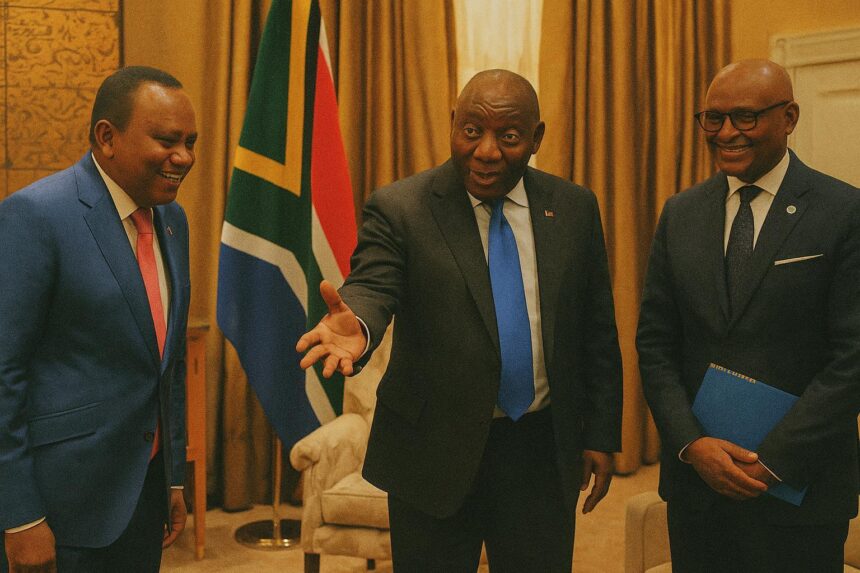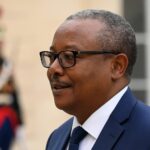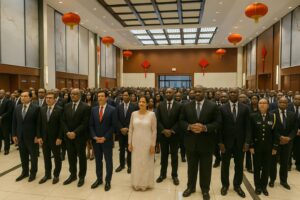Cape Town as a Strategic Diplomatic Stage
When Foreign Affairs Minister Jean-Claude Gakosso walked into the sandstone corridors of Cape Town’s Tuynhuys on 22 July 2025, the symbolism was conspicuous. The city that cradled Nelson Mandela’s first parliamentary steps has often served as South Africa’s informal listening post on continental affairs. Hosting President Cyril Ramaphosa there rather than in the administrative capital Pretoria was, according to several officials present, a deliberate nod to the historical weight of liberation diplomacy (South African Presidency press release, 22 July 2025). By carrying a sealed letter from President Denis Sassou Nguesso, Gakosso underscored Brazzaville’s desire to elevate a bilateral relationship already framed by defence cooperation and joint infrastructural ambitions.
An African Voice for a Universal Mandate
At the heart of the exchange lay the candidacy of Édouard Firmin Matoko for Director-General of UNESCO. Matoko’s résumé within the Organisation—ranging from Assistant Director-General for Priority Africa to liaison roles with field offices—makes him a rare insider capable of navigating both the labyrinthine Secretariat and the often-fractious Executive Board (UNESCO official records). Diplomats acknowledge that his platform, which centres on digital inclusion and heritage restitution, resonates with the African Union’s Agenda 2063 while remaining palatable to donor capitals in Europe and North America. By positioning him as ‘Africa’s consensus figure’, Brazzaville seeks to avoid the fragmentation that hampered previous continental bids for leadership roles in multilateral bodies.
Pretoria’s Calculus within UNESCO Corridors
South Africa, elected to the Executive Board for the 2023-2027 term, commands fourteen decisive votes in coalition with fellow Southern African Development Community members. Pretoria’s voice carries added weight because of its bridge-building reputation between the Non-Aligned Movement and OECD constituencies. Observers in Cape Town stress that Ramaphosa’s decision on whom to endorse will be shaped by a blend of factors: ideological affinity with Brazzaville, regional reciprocity on security files, and domestic expectations that South Africa remain an agenda-setter in global governance frameworks (Institute for Security Studies commentary, May 2025).
Yet Pretoria must also weigh European lobbying for alternative candidates, particularly from Nordic countries promising increased budget contributions to UNESCO’s depleted coffers. Hence Gakosso’s effort to emphasise that a Matoko tenure would neither sideline Western priorities nor dilute transparency standards. Officials familiar with the meeting describe Ramaphosa’s tone as ‘constructively cautious’, signalling willingness to consider the bid once African Union consultations are concluded next month.
Brazzaville’s Broader Multilateral Ambition
Gakosso’s tour—which included a preceding stop in Luanda—forms part of a wider offensive aimed at repositioning the Republic of Congo as a credible convenor on climate diplomacy, Francophonie initiatives and conflict-prevention mechanisms in Central Africa. By aligning the UNESCO campaign with these thematic priorities, Brazzaville hopes to project an image of policy coherence rather than opportunism. Senior officials argue that a successful Matoko mandate could amplify Congo’s soft-power toolkit, complementing its long-standing mediation roles in the Central African Republic and in regional REDD+ negotiations (Central African Forest Initiative briefing, April 2025).
Domestically, the campaign also speaks to elite consensus building. President Sassou Nguesso’s circle underscores that backing a technocrat of Matoko’s stature bolsters the administration’s reputation for nurturing international talent, thereby countering narratives that Congolese diplomacy is overly securitised. Analysts in Brazzaville note that the government’s careful messaging avoids triumphalism, instead portraying the bid as a collective continental endeavour.
From Cape Town to Samarkand: Diplomatic Crossroads Ahead
The road to the 43rd UNESCO General Conference in Samarkand this autumn remains fraught with procedural checkpoints. Regional hearings in Addis Ababa and ministerial sidelines at the United Nations General Assembly will test the depth of African unity. Should Pretoria formally endorse Matoko, observers believe the momentum could sway undecided Latin American and Asian members who traditionally calibrate their votes according to African consensus levels.
For now, Cape Town’s coastal breeze carries cautious optimism. As Minister Gakosso departed for the next leg of his tour, he privately remarked, according to a senior aide, that ‘every handshake today must translate into a ballot in Samarkand’. The lesson from South Africa’s measured reception is clear: symbolism opens doors, but sustained policy alignment will ultimately decide whether Brazzaville’s bet on UNESCO pays diplomatic dividends well beyond the banks of the Congo River.





















